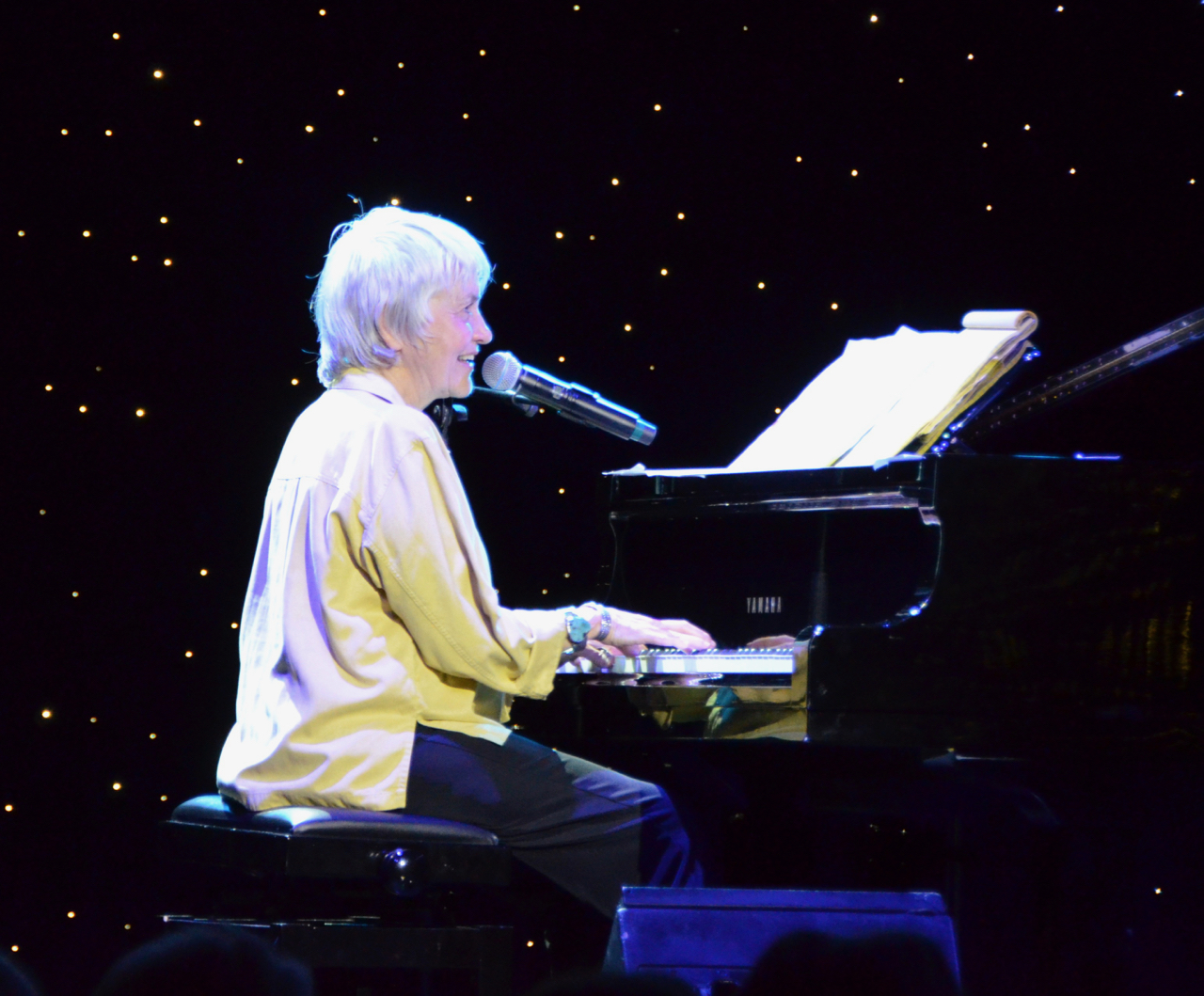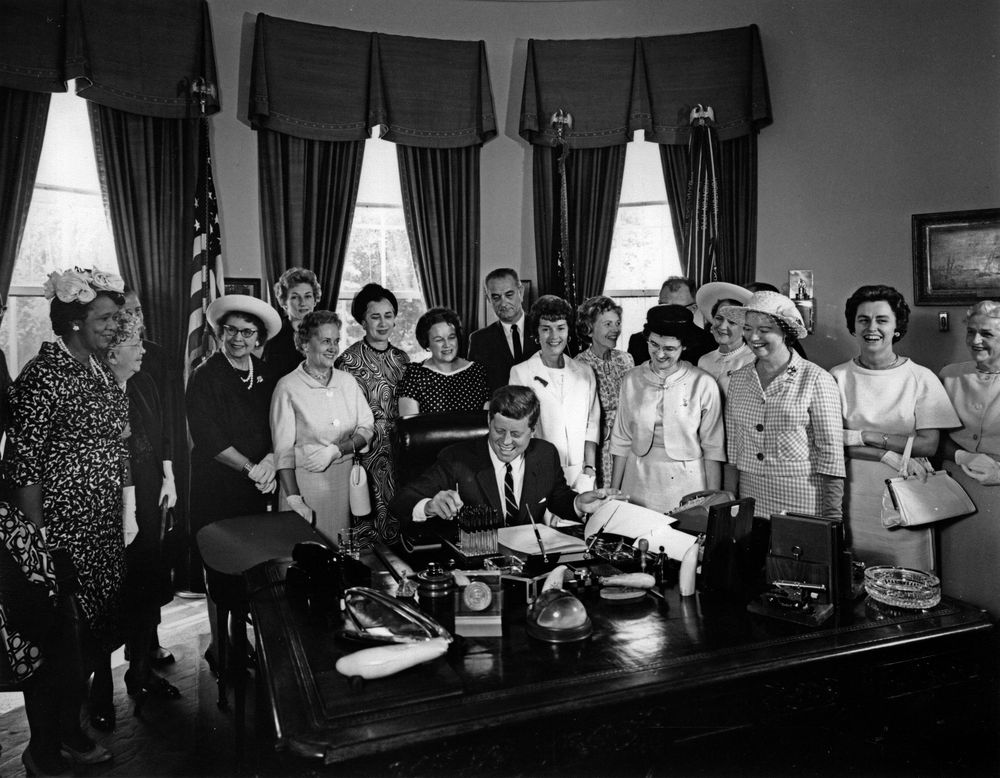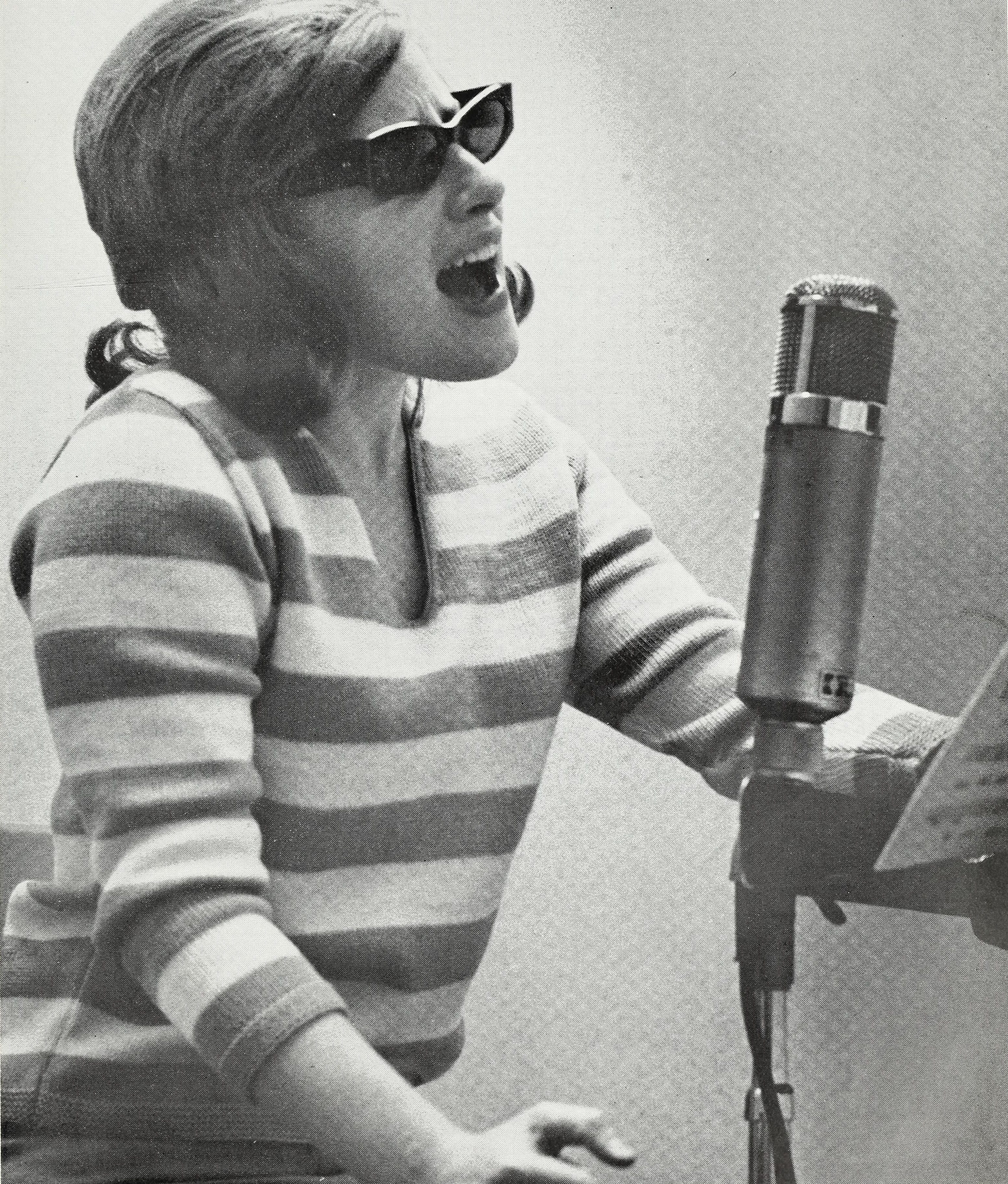|
Women's Music
Women's music is a type of music based on the ideas of feminist separatism and lesbian separatism, designed to inspire feminist consciousness chiefly in Western popular music, to promote music "by women, for women, and about women." Women's music initially focused on topics of feminism that exposed the unfair treatment of women by society and their families, which was ignored by men. Its lyrics focused on women's individual power and women's solidarity. Later, it became lesbians' music. As an offshoot of the feminist movement, the genre was referred to as a musical expression of the second-wave feminist movement and included the women's labor, civil rights, and peace movements. The movement was started by lesbian performers such as Cris Williamson, Meg Christian, and Margie Adam, African-American musicians including Linda Tillery, Mary Watkins, Gwen Avery and activists such as Bernice Johnson Reagon and her group Sweet Honey in the Rock, and peace activist Holly Near. ... [...More Info...] [...Related Items...] OR: [Wikipedia] [Google] [Baidu] |
Feminist Separatism
Feminist separatism or separatist feminism is the theory that feminist opposition to patriarchy can be achieved through women's sex segregation from men.Christine Skelton, Becky Francis, ''Feminism and the Schooling Scandal'', Taylor & Francis, 2009 ,p. 104 Much of the theorizing is based in lesbian feminism. Author Marilyn Frye describes feminist separatism as "separation of various sorts or modes from men and from institutions, relationships, roles and activities that are male-defined, male-dominated, and operating for the benefit of males and the maintenance of male privilege – this separation being initiated or maintained, at will, ''by women''." Background Cultural critic Alice Echols describes the emergence of a lesbian separatist movement as a response to homophobic sentiments expressed by feminist organizations like the National Organization for Women. Echols argues that "...the introduction of (homo)sex troubled many heterosexual feminists who had found ... [...More Info...] [...Related Items...] OR: [Wikipedia] [Google] [Baidu] |
Studio Musicians
A session musician (also known as studio musician or backing musician) is a musician hired to perform in a recording session or a live performance. The term sideman is also used in the case of live performances, such as accompanying a recording artist on a tour. Session musicians are usually not permanent or official members of a musical ensemble or band. Many session musicians specialize in playing common rhythm section instruments such as guitar, piano, bass, or drums. Others are specialists, and play brass, woodwinds, and strings. Many session musicians play multiple instruments, which lets them play in a wider range of musical situations, genres, and styles. Examples of "doubling" include double bass and electric bass, acoustic guitar and mandolin, piano and accordion, and saxophone and other woodwind instruments. Session musicians are used when musical skills are needed on a short-term basis. Typically, session musicians are used by recording studios to provide backi ... [...More Info...] [...Related Items...] OR: [Wikipedia] [Google] [Baidu] |
Birtha (band)
Birtha was an American all-female rock band of the early 1970s. Formed in Los Angeles, the band consisted of Shele Pinizzotto (guitar), Rosemary Butler (bass), Sherry Hagler (keyboards), and Olivia "Liver" Favela (drums). Each of the band members contributed lead vocals and harmonies. Biography Pinizzotto, Butler, and Hagler grew up in Los Angeles and Orange County and played together in bands during their high school years. Both Pinizzotto and Butler were in the Fullerton girl band named the Ladybirds. Afterwards, they formed another girl band, the Daisy Chain, with two of their peers from Fullerton Union High School. The Daisy Chain released one album, ''Straight or Lame'', in 1967 on a small label. After the Daisy Chain broke up in 1968, Pinizzotto and Butler formed Birtha. They were joined by Favela in 1968, at which time the group began playing clubs along the West Coast from California to Alaska. Over the next three years, Birtha worked on improving their craft and by 1 ... [...More Info...] [...Related Items...] OR: [Wikipedia] [Google] [Baidu] |
Fanny (band)
Fanny was an American rock band, active in the early to mid 1970s. They were one of the first all-female rock groups to achieve critical and commercial success, including two ''Billboard'' Hot 100 Top 40 singles. The group was founded by sisters June and Jean Millington (on guitar and bass respectively), who had been playing music together since they moved from the Philippines to California in the early 1960s. After playing through several variations of the band, they attracted the interest of producer Richard Perry who signed them to Reprise Records in 1969 as Fanny. The band recorded four albums together before June quit the group, leading to the original line-up splitting. Following a final album, Fanny disbanded in 1975. The Millington sisters have continued to play music together since the split, and with a former drummer, Brie Howard-Darling, formed the spin-off group Fanny Walked the Earth in 2018. The group had attracted critical acclaim for rejecting typical girl gr ... [...More Info...] [...Related Items...] OR: [Wikipedia] [Google] [Baidu] |
Record Labels
"Big Three" music labels A record label or record company is a brand or trademark of music recordings and music videos, or the company that owns it. Sometimes, a record label is also a publishing company that manages such brands and trademarks, coordinates the production, manufacture, distribution, marketing, promotion, and enforcement of copyright for sound recordings and music videos, while also conducting talent scouting and development of new artists, artist financing and maintaining contracts with recording artists and their managers. The term "record label" derives from the circular label in the center of a vinyl record which prominently displays the manufacturer's name, along with other information. Within the mainstream music industry, recording artists have traditionally been reliant upon record labels to broaden their consumer base, market their albums, and promote their singles on streaming services, radio, and television. Record labels also provide publici ... [...More Info...] [...Related Items...] OR: [Wikipedia] [Google] [Baidu] |
Second Wave Feminist Movement
Second-wave feminism was a period of feminist activity that began in the early 1960s and lasted roughly two decades, ending with the feminist sex wars in the early 1980s and being replaced by third-wave feminism in the early 1990s. It occurred throughout the Western world and aimed to increase women's equality by building on the feminist gains of the late 19th and early 20th centuries. Second-wave feminism built on first-wave feminism and broadened the scope of debate to include a wider range of issues: sexuality, family, domesticity, the workplace, reproductive rights, ''de facto'' inequalities, and official legal inequalities. First-wave feminism typically advocated for formal equality and second-wave feminism advocated for substantive equality. It was a movement focused on critiquing patriarchal or male-dominated institutions and cultural practices throughout society. Second-wave feminism also brought attention to issues of domestic violence and marital rape, created rape ... [...More Info...] [...Related Items...] OR: [Wikipedia] [Google] [Baidu] |
You Don't Own Me
"You Don't Own Me" is a pop song written by Philadelphia songwriters John Madara and David White and recorded by Lesley Gore in 1963, when she was 17 years old. The song was Gore's second most successful recording and her last top-ten single. Gore herself considered it to be her signature song claiming, "I just can't find anything stronger to be honest with you, it's a song that just grows every time you do it." The song was prominent at the time of its release in 1963 as it symbolized women's empowerment, showing the strength of a woman capable of standing up for herself against a man. Since then, the song has been hailed as an early feminist anthem. In 2015, singer SayGrace took Gore's song to No. 1 in Australia with a version featuring rapper G-Eazy. The following year, the song was inducted into the Grammy Hall of Fame. Background The song expresses emancipation, as the singer tells a lover that he cannot objectify her. She doesn't want to be held to his hypocritical g ... [...More Info...] [...Related Items...] OR: [Wikipedia] [Google] [Baidu] |
Lesley Gore
Lesley Gore (born Lesley Sue Goldstein, May 2, 1946 – February 16, 2015) was an American singer and songwriter. At the age of 16, she recorded her first hit song " It's My Party", a US number one in 1963. She followed it up with ten further US ''Billboard'' top 40 hits including " Judy's Turn to Cry" and " You Don't Own Me". Gore said she considered "You Don't Own Me" her signature song. Gore later worked as an actress and television personality. She composed songs with her brother Michael Gore for the 1980 film '' Fame'', which received an Academy Award Best Song nomination for "Out Here On My Own". She hosted several editions of the LGBT-oriented public television show '' In the Life'' on American TV in the 2000s. Early life and education Gore was born Lesley Sue Goldstein in Brooklyn, New York City, into a middle-class Jewish family. Her parents were Leo Goldstein and Ronny Gore. The family changed their surname to "Gore" soon after Leslie's bi ... [...More Info...] [...Related Items...] OR: [Wikipedia] [Google] [Baidu] |
National Organization For Women
The National Organization for Women (NOW) is an American feminist organization. Founded in 1966, it is legally a 501(c)(4) social welfare organization. The organization consists of 550 chapters in all 50 U.S. states and in Washington, D.C. It is the largest feminist organization in the United States with around 500,000 members. NOW is regarded as one of the main liberal feminist organizations in the US, and primarily lobbies for gender equality within the existing political system. NOW campaigns for constitutional equality, economic justice, reproductive rights, LGBTQIA+ rights and racial justice, and against violence against women. History Background Many influences contributed to the rise of NOW. Such influences included the President's Commission on the Status of Women, Betty Friedan's 1963 book '' The Feminine Mystique'', and the passage and lack of enforcement of the Civil Rights Act of 1964 (prohibiting sexual discrimination). The President's Commission on the S ... [...More Info...] [...Related Items...] OR: [Wikipedia] [Google] [Baidu] |
Second-wave Feminism
Second-wave feminism was a period of feminist activity that began in the early 1960s and lasted roughly two decades, ending with the feminist sex wars in the early 1980s and being replaced by third-wave feminism in the early 1990s. It occurred throughout the Western world and aimed to increase women's equality by building on the feminist gains of the late 19th and early 20th centuries. Second-wave feminism built on first-wave feminism and broadened the scope of debate to include a wider range of issues: sexuality, family, domesticity, the workplace, reproductive rights, ''de facto'' inequalities, and official legal inequalities. First-wave feminism typically advocated for formal equality and second-wave feminism advocated for substantive equality. It was a movement focused on critiquing patriarchal or male-dominated institutions and cultural practices throughout society. Second-wave feminism also brought attention to issues of domestic violence and marital rape, created ... [...More Info...] [...Related Items...] OR: [Wikipedia] [Google] [Baidu] |
Promoter (entertainment)
A promoter works with event production and entertainment industries to promote their productions, including in music and sports. Promoters are individuals or organizations engaged in the business of marketing and promoting live, or pay-per-view and similar events, such as music concerts, gigs, nightclub performances and raves, sports events, and festivals. Description Business model Promoters are typically engaged as independent contractors or representative companies by entertainment venues, earning a pre-arranged fee, or a share of revenues (colloquially known as a "cut" and "share of the house"), or both. A share of revenues is often a simple percentage of admission fees (called "the door") and/or food and drink sales, with many variations possible, such as minimums or maximums, allowances for various expenses, or limitations (such as only alcohol sales after midnight). Other promoters operate independently, renting venues for a fixed fee, or under a revenue sharing arra ... [...More Info...] [...Related Items...] OR: [Wikipedia] [Google] [Baidu] |
Distributors
A distributor is an electric and mechanical device used in the ignition system of older spark-ignition engines. The distributor's main function is to route electricity from the ignition coil to each spark plug at the correct time. Design A distributor consists of a rotating arm ('rotor') that is attached to the top of a rotating 'distributor shaft'. The rotor constantly receives high-voltage electricity from an ignition coil via brushes at the centre of the rotor. As the rotor spins, its tip passes close to (but does not touch) the output contacts for each cylinder. As the electrified tip passes each output contact, the high-voltage electricity is able to 'jump' across the small gap. This burst of electricity then travels to the spark plug (via high tension leads), where it ignites the air-fuel mixture in the combustion chamber. On most overhead valve engines, the distributor shaft is driven by a gear on the camshaft, often shared with the oil pump; on most overhead camsha ... [...More Info...] [...Related Items...] OR: [Wikipedia] [Google] [Baidu] |





